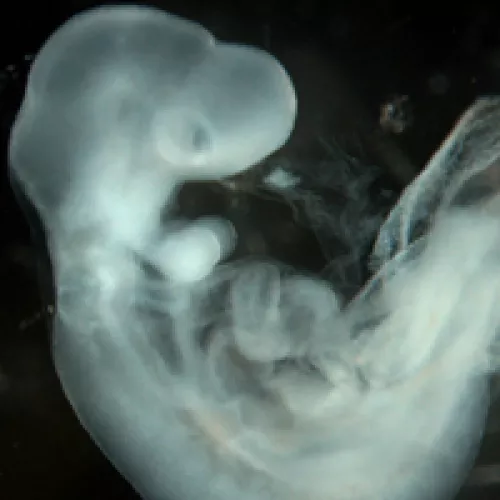CURRENT PROJECTS
One outstanding question is currently unanswered in the field of Assisted Reproductive technologies (ART): the estimation of long term risks following the use of these technologies. This has particular relevance in light of the fact that more than 6 million children or 1% of the population of the Western World have been conceived by ART. In fact, fetal adaptations in utero to adverse conditions can lead to specific diseases in the adult, including diabetes, high blood pressure and coronary heart disease. This phenomenon is termed the developmental origin of health and disease or the Barker hypothesis. The overarching hypothesis is that preimplantation stress secondary to embryo culture in vitro will reprogram the growth pattern of the embryo. The individual will adapt to the conditions encountered, but by doing so might be predisposed to long term health problem. We have approached the problem by trying to understand how stress during the pre-implantation period affects embryonic, fetal and adult development in a mouse model.
Effect of embryonic manipulation on preimplantation embryo development.
We have found that preimplantation mouse embryos are extremely sensitive to the environment in which they are cultured. Different types of media or exygen concentration result in dramatic differences in gene expression. These studies provide the basis to understand the reprogramming events that occur in the embryo secondary to culture
- Rinaudo P, Schultz R. Effect of embryo culture on global pattern of gene expression in pre implantation mouse embryos. Reproduction 128:301-311, 2004.
- Rinaudo, P; Giritharan, G.; Talbi S; Dobson, A.T.; Schultz RM. Effects of oxygen tension on gene expression in preimplantation mouse embryos. Fertility and Sterility, 86 Suppl 4:1252-64, 2006.
- Feuer S, Liu X, Donjacour A, Simbulan R, Maltepe E, Rinaudo P. 2016 Common and specific transcriptional signatures in mouse embryos and adult tissues induced by in vitro procedures. Reproduction. 2016 Oct 31. pii: REP--16-0473.
Effect of embryonic manipulation on placenta development.
We have found that placentae of mice conceived in vitro have abnormal growth and transport less neutral amino acids: this could offer an explanation of the reprogramming events that follow preimplantation embryo manipulation.
- Delle Piane L, Lin W, Liu X, Donjacour A, Revelli A, Maltepe E, Rinaudo P. Effectof the method of conception and embryo transfer procedure on mid gestation placenta and fetal development in a IVF mouse model. Human Reproduction 25(8): 2039-2046, 2010 PMCID:PMC2907231
- Bloise E, Donjacour A, Kohali K, Lin W, Simbulan R, Liu X, Petraglia F, Maltepe E, Rinaudo P. Mouse generated by In vitro fertilization show altered placental nutrient transport. Endocrinology 153(7):3457-67, 2012. PMCID: PMC3380310
- Bloise E, Feuer SK & Rinaudo PF 2014 Comparative intrauterine development and placental function of ART concepti: implications for human reproductive medicine and animal breeding. Hum Reprod Update.
Effect of embryonic manipulation on postnatal growth and epigenetic alterations.
In addition, we have discovered that mice conceived in vitro have reduced postnatal growth pattern and are glucose intolerant compared to mice conceived in vivo. Importantly, we have found a candidate gene (txnip), that is changed in the early embryo and in several tissues of adult animals conceived in vitro. Finally we have devoted extensive resources to understand if epigenetic mechanisms are involved in the epigenetic reprogramming process that occur after in vitro fertilization. We have worked with Dr. Costello group to define the epigenome of spermatozoa.
- Donjacour A, Liu X, Lin W, Simbulan R & Rinaudo P In Vitro Fertilization Affects Growth and Glucose Metabolism in a Sex-Specific Mannger in an Outbred Mouse Model. Biol Reprod. 90 80 2014.
- Feuer SK, Liu X, Donjacour A, Lin W, Simbulan RK, Giritharan G, Piane LD, Kolahi K, Ameri K, Maltepe E & Rinaudo PF Use of a Mouse in Vitro Fertilization Model to Understand the Developmental Origins of Health and Disease Hypothesis. Endocrinology 155 1956-1969. 2014.
- Feuer SK, Donjacour A, Simbulan RK, Lin W, Liu X, Maltepe E & Rinaudo PF 2014 Sexually Dimorphic Effect of In Vitro Fertilization (IVF) on Adult Mouse Fat and Liver Metabolomes. Endocrinology en20141465.
- Roadmap Epigenomics Consortium, Integrative analysis of 111 reference human epigenomes. Nature. 2015 Feb 19:518(7539):317-30. PMID 25693563.
DESCRT is a longitudinal study that both looks back in time, at children bron after reproductive treatments and forward in time at early pregnancy and delivery after reproductive treatments. Currently, there are limited data on the long-term effects of infertility and infertility treatments on children. Some studies, including research conducted in the Rinaudo lab, suggest that these children may have altered metabolic profiles; this study aims to be the largest study to answer this question.
For more information go to https://descrt.ucsf.edu
OR contact [email protected], Maria Lara (415) 476-3798
rinaudolab.ucsf.edu / lab phone (415) 476-0932





